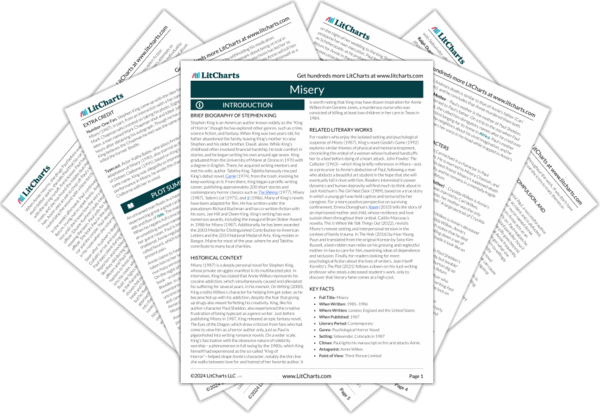Paul’s jealousy of the dead police officer shows how his will to live has deteriorated. Annie’s composure while cleaning up the crime scene suggests she is accustomed to hiding the evidence of her impulsive behavior. This efficient self-control is jarringly different from her recent uncontrolled violence, highlighting the changeability of her moods. Once again, she imposes her warped and abusive sense of blame on Paul, blaming him for
her murderous actions. Too worn down to care about angering her, Paul contradicts this statement and tells Annie the truth: the real-world consequences of her actions have caught up to them, and they can no longer pretend the end isn’t coming, one way or another.
